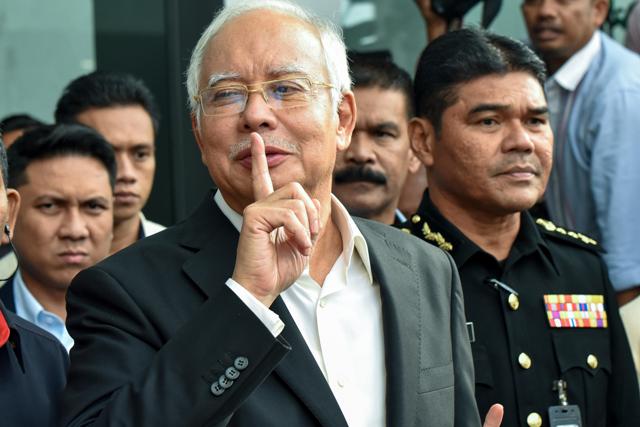The 1Malaysia Development Berhad (1MDB) scandal stands as one of the most significant cases of political corruption in Malaysia’s history. What began as an ambitious state-run investment fund in 2009 spiraled into a massive global financial scandal, tarnishing Malaysia’s political reputation and shaking the public’s faith in its leadership. The scandal’s culmination, particularly the legal consequences faced by former Prime Minister Najib Razak, has marked a pivotal moment in the country’s political landscape, bringing corruption to the forefront and prompting calls for comprehensive reforms.
The 1MDB Scandal Unfolds
1MDB was set up with the noble objective of driving Malaysia’s economic development through global investments, yet it quickly became a vehicle for one of the largest financial heists in recent history. Over $4.5 billion was misappropriated through a complex network of fraudulent transactions, involving the siphoning of funds from the sovereign wealth fund into personal accounts, shell companies, and luxury purchases. High-profile figures, including Najib Razak, were implicated in the scandal, with funds allegedly used to finance lavish lifestyles, real estate, and even Hollywood films like The Wolf of Wall Street.
The sheer scale of the corruption was staggering. International investigations uncovered the global reach of the fraud, with countries such as the United States, Switzerland, and Singapore joining forces to trace the stolen money. The U.S. Department of Justice (DOJ) took the lead, filing lawsuits to seize assets linked to the scandal, including high-end real estate, artworks, and other luxury items. The involvement of global financial institutions added further gravity to the case, demonstrating the extensive web of corruption that spanned continents.
Najib Razak’s Downfall
At the heart of the 1MDB scandal was Najib Razak, who had founded the 1MDB fund during his tenure as Prime Minister. The scandal became a key factor in his eventual political downfall. As accusations mounted and the public grew increasingly disillusioned with his leadership, Najib’s government became embroiled in scandal and controversy. In the 2018 general elections, the opposition coalition led by former Prime Minister Dr. Mahathir Mohamad capitalized on widespread anti-corruption sentiment, defeating Najib’s Barisan Nasional (BN) coalition and ending over six decades of UMNO rule.
With Mahathir’s return to power, investigations into 1MDB were reinvigorated. In 2020, Najib was convicted on multiple charges related to the theft of 1MDB funds. He was found guilty of abuse of power, criminal breach of trust, and money laundering, leading to a 12-year prison sentence and a hefty fine. This conviction was a significant moment in Malaysian politics, symbolizing the country’s attempt to hold its leaders accountable for corruption. However, Najib has continued to maintain his innocence and has filed appeals, making the legal battle far from over.
International Ramifications and Legal Pursuits
The global reach of the 1MDB scandal meant that the legal fallout extended far beyond Malaysia’s borders. The U.S. DOJ led investigations that resulted in the filing of civil suits seeking to recover stolen assets linked to 1MDB. Efforts to reclaim millions of dollars in misappropriated funds are still ongoing, as the international legal community continues to pursue the individuals and entities involved in the scandal.
Several countries, including Switzerland and Singapore, took decisive action to dismantle the money-laundering operations that facilitated the scandal, making the case one of the most complex and extensive global corruption probes in recent years. Despite some successes in recovering assets, the full scope of the financial misappropriation remains a daunting challenge for authorities.
Malaysia’s Political Landscape After 1MDB
The 1MDB scandal has left an indelible mark on Malaysia’s political landscape. The public’s outrage over the corruption has led to significant shifts in the nation’s political culture, as voters demanded greater transparency and accountability from their leaders. The scandal was a major factor in the defeat of the long-dominant Barisan Nasional (BN) coalition, signaling a desire for reform among the Malaysian electorate.
Dr. Mahathir’s return to office in 2018 was seen as a step toward rectifying the country’s governance. Under his leadership, Malaysia began efforts to strengthen anti-corruption agencies, improve financial oversight, and restore public trust in government institutions. However, political instability has continued, with shifting alliances and power struggles, as seen in the collapse of the Pakatan Harapan coalition in 2020.
Even though Najib was convicted, Malaysia’s political fragmentation continues, with UMNO and other factions still wielding significant influence in the country’s political sphere. Najib’s legal battles are ongoing, and the full resolution of the 1MDB scandal is still in progress.
The Road Ahead: Reform and Recovery
While the conviction of Najib Razak is a victory for anti-corruption advocates, it is clear that Malaysia’s road to full recovery is far from over. The 1MDB scandal exposed deep-rooted issues of corruption, a lack of transparency, and systemic flaws within the Malaysian government. Efforts to restore public faith in political institutions have been slow, with many citizens continuing to demand broader reforms to tackle corruption at all levels of government.
As Malaysia moves forward, it faces a critical opportunity to overhaul its political system. Strengthening the independence of anti-corruption bodies, enhancing the transparency of government financial dealings, and ensuring greater accountability are vital steps for rebuilding public trust. The continued pursuit of stolen assets and the prosecution of all those involved in the 1MDB scandal remain key aspects of this journey.
In conclusion, while the legal consequences of the 1MDB scandal have brought some level of justice, the political and institutional reforms necessary for Malaysia to fully move past this chapter are still in progress. The legacy of 1MDB is one of both scandal and a hard-won fight for accountability, with the hope that it will lead to lasting change in Malaysia’s governance.




